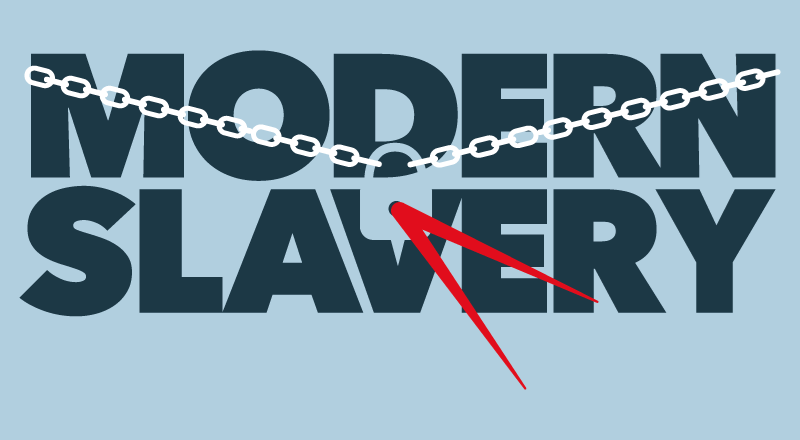Last week, the Financial Reporting Council (FRC) published its position paper outlining the steps it will take to fulfil its part in the process of audit and corporate governance reform, as laid out in the UK government’s feedback statement on the reform agenda. This comes at the end of a long period of consultation over what UK audit and corporate governance should look like.
Initial reactions to the feedback statement were muted at best, disappointed at worst, with many commentators pointing to watered-down proposals, the lack of clarity around some measures and the vague timeline. But the FRC paper somewhat mirrors a growing tendency within the profession to focus on the positives within the government proposals and making the best of what we’ve got – while also piling on pressure for further reform.
“There’s a lot for the profession and for the FRC and others to be getting on with, regardless of the legislative agenda,” says Dr Nigel Sleigh-Johnson, ICAEW’s Director, Audit and Corporate Reporting. “There are still a lot of frustrations and concerns about the timing of everything, for which we have very little clarity.”
There are elements that the profession can make progress on outside of regulator intervention, but the FRC paper has provided something of a roadmap towards how the reform package can be made to work. This is particularly important while the country’s politics are so uncertain and in flux. “There’s quite a worry that the political will won't be there in the near future,” says Sleigh-Johnson.
There are some clear positives – such as the Audit and Assurance Policy – that companies can act on now, with encouragement from professional bodies such as ICAEW. “We’re already seeing some companies move to produce audit and assurance policies. We're updating our guidance in that area, which will appear in a couple of months. The focus on the Audit and Assurance Policy is actually quite critical, underpinning a lot of the change that’s needed in the assurance world.”
It will encourage audit committees and investors to focus on the need for assurance in areas such as cyber security and environmental, social and governance reporting, where many think that there is a need for a greater degree of assurance.
Another broadly positive step in the government feedback statement is the section on distributable profit disclosures, which in part affects the wider market and not just larger companies. This has been a difficult and significant area of disclosure, and it has been quite controversial. ICAEW has long produced guidance for companies, but the FRC will now take on that responsibility. “What the government has in mind in this area is very much in line with ICAEW ideas. It broadly reflects our thinking, so that’s quite important.”
As this agenda moves forward, professional bodies and others within the profession will need to take a keen interest and apply pressure to ensure that what comes through is not asymmetrical, focusing unduly on auditors, for example, rather than other areas of the corporate reporting ecosystem. Views vary as to whether the reform plans as they stand actually achieve this. “We’ll see how it works out, but there is a fair degree of focus on directors’ accountability, which is central to a lot of this.”
Next steps
In the immediate future, professional bodies need to start increasing awareness among companies and audit committees about the significance of the changes proposed. Directors’ responsibilities will increase and new competencies might be needed. It’s not just a matter of technical reporting changes, says Sleigh-Johnson.
“It does lift the transparency and accountability around directors’ responsibilities, so we need to keep up the pressure for change – on government and in general,” he says.
“We need to be clear that the profession is up for change and not stalling. It is doing its part to promote reform in the whole corporate reporting ecosystem. We need to keep up the challenge and be outspoken about it.”
ICAEW is planning several initiatives to do just that, such as offering additional clarity and support around market-opening measures. There was no explicit reference to managed shared audit in the FRC’s roadmap, despite the time and effort already invested in this idea. Instead, there were references to audit committees considering how they could better encourage diversity in the audit market. “The lack of discussion of this issue perhaps reflects the need for legislation to put such a regime in place,” says Sleigh-Johnson.
“We’re going to do some work to find out what the real appetite for managed shared audit is among challenger firms. We need to understand more clearly whether this really is a viable option. We will try to work out what the intentions are and what the barriers and blockages are, and see what we and others might do to assist and identify what needs to change, whether it's investment or capacity building and so on. Progress is going to be something that takes place over a number of years, I think. But it’s important that it’s being taken forward.”
Some concern and frustration has been expressed around internal controls, with many expressing disappointment at the limited package of changes proposed. “It’s certainly not going to resemble the United States Sarbox approach,” says Sleigh-Johnson. “There’s a lot of system design still needed around those proposals. There’s a lot to be done around the assurance side as well, which is critical to underpinning confidence in whatever work is done, whatever is said about internal controls.”
This is a view echoed by Iain Wright, ICAEW’s Managing Director, Reputation and Influence. “We clearly would have liked to have seen statutory strengthening of the internal controls regime through a UK equivalent of Sarbanes-Oxley. We believe that looking at audit reform and corporate governance in a holistic manner, rather than picking off or highlighting certain areas, would make the UK regime more robust, resilient and competitive in the 2020s.”
Wright adds that ICAEW remains willing and able to help the FRC fulfil the objectives set out in its position paper. “Our high quality thought leadership and practical work on corporate reporting and sustainability can assist in strengthening assurance, reporting and governance requirements,” he says. “The concept of an audit and assurance policy, invented within the Audit and Assurance Faculty, is a key feature within the Feedback Statement and position paper to improve assurance for a company. We stand ready to assist government and the regulator in putting in place both the framework and the practical steps to strengthen the UK’s corporate reporting and assurance position.”
Guidance will be needed in lots of areas to ensure that firms can get to grips with the changes. Some will come from the FRC, but there will be gaps, which is where ICAEW and other professional bodies will step in.
This will help provide clarity for all companies and audit firms, but it’s perhaps particularly useful for smaller audit firms as a lot of the changes will affect them, despite conversations being focused on large company audits. Just how much will affect them also depends on what happens with public interest entity (PIE) thresholds, which need more clarity.
“There is a concern about the complexity of thresholds generally in company law, which actually is quite a problem,” says Sleigh-Johnson. “There are so many different thresholds applied to reporting and assurance and that could cause real confusion.. I think it will help everybody if we try and get some simplification in that area.”
ICAEW is reflecting on what else can be done in the second half of the year to move the agenda forward, Sleigh-Johnson explains. In addition to managed shared audit, there are also considerations around capacity in the audit market.
“There are real pressures on capacity across the whole profession. That is a significant challenge that isn't easily soluble, but it’s certainly one we should all think about some more.”
Recent articles
Future of audit
Following the UK government's feedback statement on audit and corporate governance reform, we explore the various factors shaping the profession in 2022.




